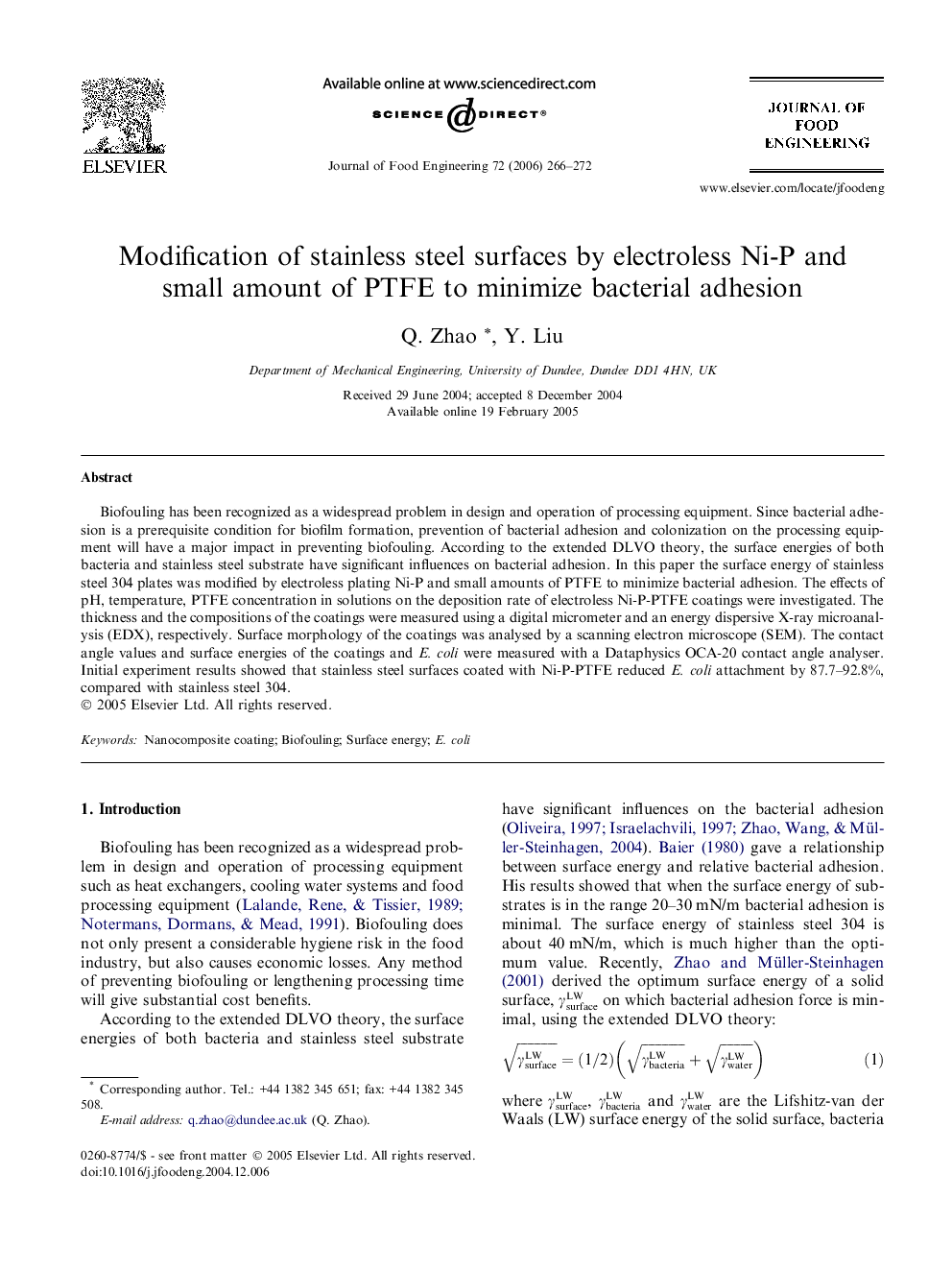| Article ID | Journal | Published Year | Pages | File Type |
|---|---|---|---|---|
| 226142 | Journal of Food Engineering | 2006 | 7 Pages |
Biofouling has been recognized as a widespread problem in design and operation of processing equipment. Since bacterial adhesion is a prerequisite condition for biofilm formation, prevention of bacterial adhesion and colonization on the processing equipment will have a major impact in preventing biofouling. According to the extended DLVO theory, the surface energies of both bacteria and stainless steel substrate have significant influences on bacterial adhesion. In this paper the surface energy of stainless steel 304 plates was modified by electroless plating Ni-P and small amounts of PTFE to minimize bacterial adhesion. The effects of pH, temperature, PTFE concentration in solutions on the deposition rate of electroless Ni-P-PTFE coatings were investigated. The thickness and the compositions of the coatings were measured using a digital micrometer and an energy dispersive X-ray microanalysis (EDX), respectively. Surface morphology of the coatings was analysed by a scanning electron microscope (SEM). The contact angle values and surface energies of the coatings and E. coli were measured with a Dataphysics OCA-20 contact angle analyser. Initial experiment results showed that stainless steel surfaces coated with Ni-P-PTFE reduced E. coli attachment by 87.7–92.8%, compared with stainless steel 304.
